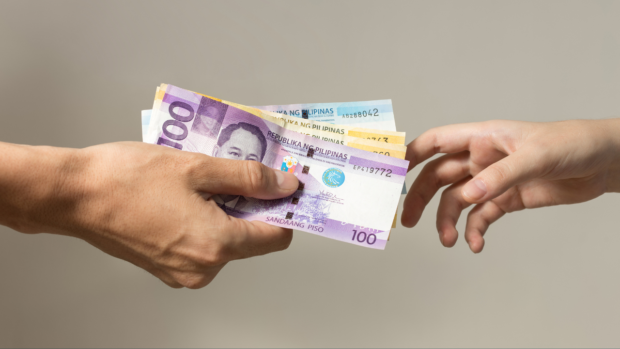
INQUIRER STOCK PHOTO
MANILA, Philippines — Agri Rep. Wilbert Lee urged the Department of Social Welfare and Development (DSWD) on Saturday to expedite the process of increasing the cash grant under its Pantawid Pamilyang Pilipino Program (4Ps), instead of making the beneficiaries wait two more years for the approval of several bills seeking such a hike in government assistance.
“If the cash grant can be increased, let’s not make (the beneficiaries) wait longer,” Lee said. “It may take until 2025 before the beneficiaries get the increased aid if we wait for the measures on higher 4Ps cash grants to be enacted into law,” he added.
There are four such measures pending at the House Committee on Poverty Alleviation, which were filed by Representatives Alfred de los Santos, Paul Daza, Franz Pumaren, and House Minority Leader Marcelino Libanan.
Social Welfare Secretary Rex Gatchalian, however, explained that congressional action was still needed to green-light any increase in the 4Ps cash grant.
“Do we support it? Of course, the DSWD will always support anything that will improve the lot of our beneficiaries,” Gatchalian told the Inquirer in a phone interview.
P102-B budget
But the former Valenzuela representative explained that the agency had to look into “two regimes: the allocation in the budget, and the 4Ps law (that) will have to be amended.” Gatchalian said the cash grants are anchored primarily on those two “legislative regimes,” and that it is indicated under the 4Ps law how the cash assistance is computed.
The 4Ps program was introduced during the Arroyo administration and expanded by the Benigno Aquino administration. In 2019, during the Duterte administration, it was institutionalized by law under Republic Act No. 11310.
For 2023, the program received P102.61 billion from the national budget, the biggest share among the DSWD’s major social protection services, according to the Department of Budget and Management.
Under RA 11310, the following cash transfers are given to qualified families for a maximum of 10 months a year: P300 a month for each child enrolled in daycare or elementary school; P500 a month for each child enrolled in junior high school and P700 a month for each child enrolled in senior high school. Each beneficiary household also gets P750 a month in health and nutrition grants for a maximum of 12 months, and a P650 monthly rice subsidy.
Some 4.3 million households were given assistance under the program in 2022, the DSWD said early this year.
The program mandates the National Advisory Council (NAC) to determine the amount of cash grants for beneficiaries, based on the recommendation of the Philippine Institute for Development Studies (PIDS). The PIDS conducts a periodic assessment of the 4Ps’ effectiveness every six years to determine if the cash grants should be adjusted to its present value using the consumer price index. The next assessment is due in 2025.
Proposed increases
Lee suggested that the periodic assessment of the 4Ps’ cash grant be done every two to three years instead of the current six years. “It is clear that the beneficiaries are not receiving enough aid,” he said, adding that “any additional amount in the cash grants will be a big help” to the millions of families under the program.
The lawmaker noted that an April 28 study by the PIDS had pushed for a P906 health grant a month per household, and an increase in monthly education allowance for a maximum of 10 months a year for the following grade levels: P362 for every child enrolled in daycare and elementary, P604 for every child enrolled in junior high school, and P846 for every child enrolled in senior high school.
Lee also cited a May 29 PIDS report which noted that because of the COVID-19 pandemic and inflation, the P31,200 maximum amount that a 4Ps household can receive in a year had been reduced in value to only P 14,524.
Preliminary results of the latest Family Income and Expenditure Survey released last year by the Philippine Statistics Authority also showed that the poverty rate worsened to 18.8 percent in 2021, from 16.7 percent in 2018.
This translates to 19.99 million Filipinos who are living below the poverty line, or those making less than P12,030 a month for a family of five.
Lee is the principal author of the proposed “Expanded 4Ps Act” which seeks to enhance capacity building in education, entrepreneurship training, and skills upgrading for adult beneficiaries. The bill was approved by the House Committee on Appropriations and Committee on Poverty Alleviation on May 16.